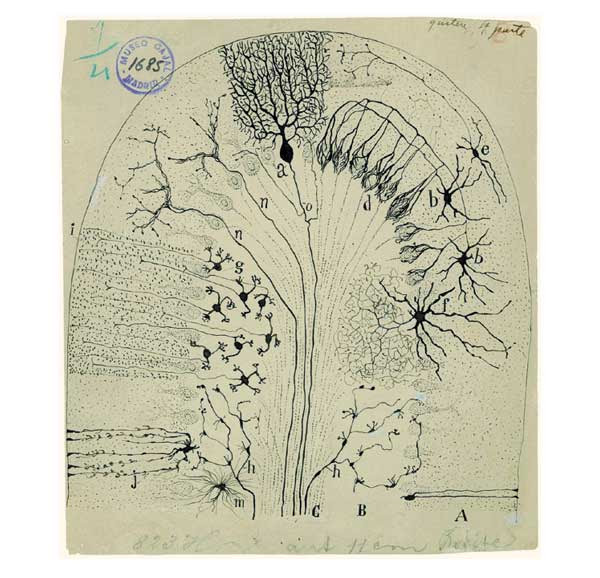
Un hombre con tetraplejia logra caminar gracias a un enlace digital inalámbrico entre su cerebro y su médula espinal
El dispositivo, según sus creadores, transforma “el pensamiento en acción”. Gert-Jan Oskam, que sufrió un accidente de bicicleta, puede volver a subir escaleras.
#Neurociencia #Neurología #Cerebro #MédulaEspinal #LesiónMedular #Parálisis #Tetraplegia #PuenteDigital #Neurotecnología
Un hombre tetrapléjico vuelve a caminar gracias a un puente digital entre el cerebro y la médula espinal
El holandés Gert-Jan Oskam, de 40 años, quedó paralizado tras un accidente en bicicleta y ahora puede subir escaleras con muletas
#Neurociencia #Neurología #Cerebro #MédulaEspinal #LesiónMedular #Parálisis #Tetraplegia #PuenteDigital #Neurotecnología
Walking naturally after spinal cord injury using a brain–spine interface
A spinal cord injury interrupts the communication between the brain and the region of the spinal cord that produces walking, leading to paralysis. Here, we restored this communication with a digital bridge between the brain and spinal cord that enabled an individual with chronic tetraplegia to stand and walk naturally in community settings.
#Neuroscience #Neurology #Brain #SpinalCord #SpinalCordInjury #Paralysis #BrainSpineInterface #DigitalBridge #Neurotechnology #Neurotech
Wireless Brain-Spine Interface: A Leap Towards Reversing Paralysis
Researchers have designed a wireless brain-spine interface enabling a paralyzed man to walk naturally again. The ‘digital bridge’ comprises two electronic implants — one on the brain and another on the spinal cord — that decode brain signals and stimulate the spinal cord to activate leg muscles.
Remarkably, the patient experienced significant recovery in sensory perceptions and motor skills.
#Neuroscience #Neurology #Brain #SpinalCord #SpinalCordInjury #Paralysis #BrainSpineInterface #DigitalBridge #Neurotechnology #Neurotech
Litio en el agua y autismo
#Neurociencia #Cerebro #Neurología #EnfermedadesNeurológicas #EnfermedadesNeuropsiquiátricas #DesarrolloCerebral #Neurodesarrollo #Neurodiversidad #Autismo #TEA #Litio #Litio-en-el-agua-y-autismo
Short-read genome sequencing test may help diagnose atypical Friedreich's Ataxia
Test advised for patients whose symptoms, family history are not indicative of Friedreich's Ataxia.
#Neuroscience #Brain #NeurologicalDiseases #NeurodegenerativeDiseases #Neurodegeneration #Cerebellum #Ataxia #FriedreichAtaxia #HereditaryAtaxias #Ataxias #NeurogeneticDiseases #Neurogenetics
Higher Vitamin D Dose in Childhood Linked to Lower Mental Health Risk
A recent study suggests higher doses of Vitamin D3 supplementation during early childhood may reduce the risk of internalizing psychiatric symptoms in later years.
#Neuroscience #Brain #Neurology #NeurologicalDiseases #Psychiatry #PsychiatricDiseases #NeuropsychiatricDiseases #MentalHealth #VitaminD #VitaminD3 #BrainDevelopment
https://neurosciencenews.com/mental-health-child-vitamin-d-23316/
Ranking CYD: el sistema universitario madrileño no es capaz de competir con el catalán, vasco o navarro
La comunidad, que apenas invierte en sus campus públicos y aloja a casi un tercio del total de privados, se sitúa por detrás de esas autonomías en cualquier parámetro de la clasificación
#Universidad #UniversidadPública #EducaciónSuperior #PolíticaUniversitaria
A mental-health crisis is gripping science — toxic research culture is to blame
With researchers reporting high rates of anxiety and depression, calls are growing to fundamentally change science before it’s too late.
Putting the Ph back into the PhD – across disciplines & cultures
Join us for our annual Katharine E. Welsh Symposium on R3eforming Graduate Science Education – worldwide!
Learn from the experiences of practitioners from the US and around the globe. Explore innovative approaches to advanced training in the 3R’s, Rigor, Reproducibility and Responsibility, in graduate science programs across the disciplines!
#PhD #PhDEducation #DoctoralEducation #GraduateEducation #University #Research #Science #Biomedicine #Rigor #Reproducibility #Responsability #3R
Conferencia PRISMA
Iniciativa para visibilizar el trabajo de personas LGTBIQA+ investigadoras en el ámbito de la Ciencia, la Tecnología y la Innovación por su efecto inspirador y su contribución a una sociedad más diversa.
#Ciencia #DiversidadEnCiencia #Igualdad #Diversidad
#LGTB #LGBTQ #LGTBQ #LGBTQIA #LGTBQIA
This year we are holding a BrainArt Competition under the theme "The Multifaceted Brain: Adaptation and Diversity". We are now accepting submissions for the BrainArt Competition! Pleas
#NeurosciArt #BrainArt #NeuroArt
#Neuroscience #Brain
#SciArt #Art
TRIVULGANDO
Esta jornada intenta mostrar a los investigadores los diferentes formatos de divulgación para que cada uno pueda escoger el suyo y empiece a divulgar de manera interesante, eficiente y útil. Discutiendo y explorando la propia divulgación pretendemos, además, tender un puente entre investigación y sociedad. Así surge esta tríada que nos mueve, esta trivulgación.
#Ciencia #DivulgaciónCientífica #ComunicaciónCientífica #ComunicaCiencia
El nuevo Código Deontológico de la profesión médica recoge disposiciones dirigidas a garantizar el máximo respeto y la mejor asistencia sanitaria a las personas del colectivo LGTBQIA+
#Medicina #AtenciónSanitaria #CódigoDeontológico #DeontologíaMédica #ProfesiónMédica #LGTB #LGTBQ #LGTBQIA #LGTBifobia #DíaContraLaLGTBifobia
How to feed mini-organs
Organoids, lab-grown mini-organs, hold the promise for better understanding of human biology. But these microscopic organ-like blobs of cells fall short of real organs in a lot of ways. For one, their size is limited to less than half of a millimeter in diameter — any larger and their internal cells start dying because nutrients from the liquid they’re grown in can’t diffuse past a certain distance. Scientists are now making lab-grown mini-organs more lifelike by adding blood vessels.
#Biomedicine #Biotechnology #Organoids #BloodVessels #BrainOrganoids #Neuroscience #Neurology
https://alleninstitute.org/news/scishots-how-to-feed-mini-organs/
10 medidas PRISMA
para la igualdad LGTBQIA+ en centros de investigación y entornos CTI
#Ciencia #PolíticaCientífica #Igualdad #Diversidad #LGTB #LGBTQ #LGTBQ #LGBTQIA #LGTBQIA #DíaContraLaLGTBifobia
The Therapeutic Potential of Non-Invasive and Invasive Cerebellar Stimulation Techniques in Hereditary Ataxias
#Neuroscience #Brain #NeurologicalDiseases #NeurodegenerativeDiseases #Neurodegeneration #Cerebellum #Ataxia #FriedreichAtaxia #HereditaryAtaxias #Ataxias #NeurogeneticDiseases #Neurogenetics #CerebellarStimulation #DeepBrainStimulation #TranscranealDirectStimulation #Neurotechnology #Biomedicine
La actividad física ayuda a contrarrestar el riesgo genético del alzhéimer
#Neurociencia #Cerebro #Neurología #EnfermedadesNeurológicas #EnfermedadesNeurodegenerativas #Neurodegeneración #Demencia #Alzheimer #Neurogenética #ApoE #EjercicioFísico #ActividadFísica #Deporte
#Biomedicina
La proteína TAU, que se acumula en el cerebro de personas con Alzheimer, se propaga por medio de las sinapsis
#Neurociencia #Cerebro #Neurología #EnfermedadesNeurológicas #EnfermedadesNeurodegenerativas #Neurodegeneración #Demencia #Alzheimer #Tau #OvillosNeurofibrilares #Sinapsis #Biomedicina
Un estudio revela cómo las proteínas tóxicas se propagan por el cerebro en la enfermedad de Alzheimer
La forma más patológica de la proteína TAU, que se acumula en el cerebro de las personas con enfermedad de Alzheimer, se propaga por el cerebro por medio de las sinapsis
#Neurociencia #Cerebro #Neurología #EnfermedadesNeurológicas #EnfermedadesNeurodegenerativas #Neurodegeneración #Demencia #Alzheimer #Tau #OvillosNeurofibrilares #Sinapsis #Biomedicina
Professor at #UniversidadAutonomadeMadrid #UAM
#Research in #Biomedicine #BrainDiseases #NeurodegenerativeDiseases #Ataxias
🧠🔬🧬
Enthusiastic about #OpenScience and #SciComm
Concerned about #SciencePolicy
Promoting #HumanRights
LGT(B)Q+🌈 #DiversityInSTEM #LGTBQ+ #LGBTQSTEM #PrideinSTEM
Very interested in #Music #Art #Dance #SciArt #NeuroArt #BrainArt
